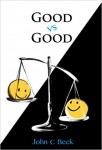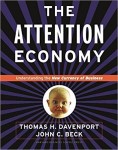

John C. Beck is President of the North Star Leadership Group, Senior Fellow at the IAFOR Research Center at Osaka School of International Public Policy, Senior Research Fellow at the Annenberg Center for the Digital Future, and Senior Advisor to Cambodia's Minister of Public Works and Transport. Previously, he was Chief Innovation Officer at Arizona State University (where he is still a Sr Advisor to the Provost) and founded Hult Labs where his research on business school curriculum redesign has won awards and press acclaim. He also served as the Dean of Globis University—the first non-Japanese to lead a bilingual professional degree program in Japan—and as a Professor and Senior Advisor at the Lee Kuan Yew School of Public Policy in Singapore. He was formerly Director of International Research at Accenture and a Senior Advisor at Monitor Group. Dr. Beck has been a Professor of Global Management & Dean of Research at Thunderbird School of Global Management.
John earned his B.A. in East Asian Studies and Sociology summa cum laude from Harvard University, and was the first graduate of Harvard’s integrative Ph.D. program in Organizational Behavior. He has been a Visiting Professor at IMD (Switzerland), IPADE (Mexico) and ESMT (Germany) and the International University of Japan. Dr. Beck has also taught at numerous other universities like: Harvard, UCLA, USC, and the Ivey School in Canada. He was the originator of The Economist’s Business Professor of the Year award. Dr. Beck has advised several presidents and prime ministers during his career.
He has hundreds of articles and ten books including the business best-sellers: The Attention Economy and The Kids are Alright. His books have been translated into eleven languages. He has appeared on CNN, CBS Evening News, BBC, Fox News and National Public Radio. He is quoted and cited in The Wall Street Journal, The Economist, The Financial Times, The New York Times, The Atlantic and other leading papers and magazines. His latest book was Good vs Good, which was named one of the Best Books of Year, and was one of only five business/economics books to receive a starred review from Kirkus Reviews in 2013. Currently he is working on building video games to replace entire MBA programs and holds provisional patents in the field.
| John Beck | Points |
|---|---|
| Academic | 0 |
| Author | 141 |
| Influencer | 0 |
| Speaker | 0 |
| Entrepreneur | 0 |
| Total | 141 |
Points based upon Thinkers360 patent-pending algorithm.
 Development-based: redo levels or episodes as often as necessary to master the material
Development-based: redo levels or episodes as often as necessary to master the material
Tags: EdTech, Education, Mergers and Acquisitions
 Complexity: students learn “success” is getting multiple-choice questions right … no wonder graduates are stunned by the intricacy of real life
Complexity: students learn “success” is getting multiple-choice questions right … no wonder graduates are stunned by the intricacy of real life
Tags: EdTech, Education
 Editable: Students cheat ... those that do not, worry that others will ... ergo, any assessment tool must be quickly and easily mutable
Editable: Students cheat ... those that do not, worry that others will ... ergo, any assessment tool must be quickly and easily mutable
Tags: EdTech
 Foundational: schools are all about memorization of concepts; success in life is about the application of mental models.
Foundational: schools are all about memorization of concepts; success in life is about the application of mental models.
Tags: EdTech, Education
 Grounded: we cannot effectively get children into adulthood until we get the ivory tower out of higher education
Grounded: we cannot effectively get children into adulthood until we get the ivory tower out of higher education
Tags: EdTech, Education
 Hypothesis-driven: good strategists develop hypotheses, then test them to see if those chosen strategies can be successful; do you?
Hypothesis-driven: good strategists develop hypotheses, then test them to see if those chosen strategies can be successful; do you?
Tags: EdTech
 Individual: I confess that I have given passing grades to hundreds of students who did not deserve it
Individual: I confess that I have given passing grades to hundreds of students who did not deserve it
Tags: EdTech
 Judicial: education IS feedback; student decisions must be constantly critiqued, not just “scored”
Judicial: education IS feedback; student decisions must be constantly critiqued, not just “scored”
Tags: EdTech, Education
 Kinetic: to engage students keep plot, place, and people constantly on the move – our brains learn and retain more in unfamiliar settings
Kinetic: to engage students keep plot, place, and people constantly on the move – our brains learn and retain more in unfamiliar settings
Tags: EdTech, Education
 Logical: many graduates do not know how to make a coherent, consistent argument and defend it – but even in the Attention Economy, it must be taught!
Logical: many graduates do not know how to make a coherent, consistent argument and defend it – but even in the Attention Economy, it must be taught!
Tags: EdTech
 Managerial: new graduates are awful at dealing with real people in real organizations because universities are not equipped to teach those skills
Managerial: new graduates are awful at dealing with real people in real organizations because universities are not equipped to teach those skills
Tags: EdTech
 Nurturing: real education is constant feedback from mentors who want the student to succeed
Nurturing: real education is constant feedback from mentors who want the student to succeed
Tags: EdTech, Education
 Organic: solving business problems the way you would in “real life”
Organic: solving business problems the way you would in “real life”
Tags: EdTech, Education
 Puzzling: solve problems, get dopamine, and learn
Puzzling: solve problems, get dopamine, and learn
Tags: EdTech
 Quirky: our brains love surprises; use them in education
Quirky: our brains love surprises; use them in education
Tags: EdTech, Education
 The rigor no longer found in most formal education may be the cause of some of our biggest societal problems
The rigor no longer found in most formal education may be the cause of some of our biggest societal problems
Tags: EdTech, Education
 Synapse-building: for decision-making and action … not rote memorization
Synapse-building: for decision-making and action … not rote memorization
Tags: EdTech, Education
 Time-constrained: time is a limited resource forcing choices in what we do and how we think
Time-constrained: time is a limited resource forcing choices in what we do and how we think
Tags: EdTech
 UBIQUITOUS: THE VERY BEST TEACHER IS A MENTOR WHO ASSESSES AND ADVISES CONSTANTLY
UBIQUITOUS: THE VERY BEST TEACHER IS A MENTOR WHO ASSESSES AND ADVISES CONSTANTLY
Tags: EdTech, Education
 VICARIOUS: IF YOU REALLY WANT TO LEARN, YOU HAVE TO SEE THE WORLD THROUGH SOMEONE ELSE’S EYES
VICARIOUS: IF YOU REALLY WANT TO LEARN, YOU HAVE TO SEE THE WORLD THROUGH SOMEONE ELSE’S EYES
Tags: EdTech
 Be Comfortable in Your Own Skin
Be Comfortable in Your Own Skin
Tags: Customer Experience, Innovation, Management
 Good vs Good: Why the 8 Great Goods Are Behind Every Good (and Bad) Decision
Good vs Good: Why the 8 Great Goods Are Behind Every Good (and Bad) Decision
Tags: Management, Leadership, Culture
 The Attention Economy : Understanding the New Currency of Business
The Attention Economy : Understanding the New Currency of Business
Tags: Customer Experience, Innovation, Management